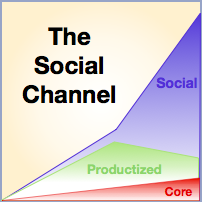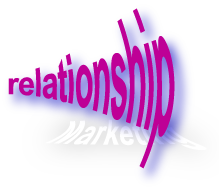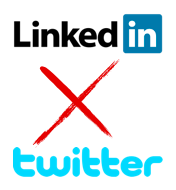Social Channel One: Building Post-Product Relationships with Customers is how to Build Brands
 Pioneering brands are building post-product customer relationships in the social channel because they realize that product features are copied easily and serve as weak differentiators, which leads to pervasive commoditization. Moreover, people’s preferences for individualized information dealt mass media a lethal blow, and products firms will have a similar fate. Here’s why products will become extinct and how to guide your brand in building post-product customer relationships and profits. Pioneering brands are building post-product customer relationships in the social channel because they realize that product features are copied easily and serve as weak differentiators, which leads to pervasive commoditization. Moreover, people’s preferences for individualized information dealt mass media a lethal blow, and products firms will have a similar fate. Here’s why products will become extinct and how to guide your brand in building post-product customer relationships and profits.
I have predicted for years that mass customization would be the fate of “products,” and social business is bearing this out in spades, so here I’ll delve into how impersonal “products” will be rejected by customers in 5-15 years. More important, CMOs and brand stewards who appreciate this transformation will enjoy unusual advantage, and smart ones will prepare for it now. Brands that don’t get it will simply perish, and no one will even notice except their producers and vendors. Just think about the local papers and TV stations you have known.
This is Part One […]
 Recent coverage has increased my doubts in Facebook’s management team, whose failure to capitalize on its unique assets looks increasingly likely. In the Facebook As Investment trilogy, I examined Facebook through three different lenses and voiced my doubts about its management team’s ability to realize the company’s fantastic potential. Many of CSRA’s clients have invested significantly in Facebook presences, and I am not predicting the site’s demise, but I question its long-term viability. Brands face two types of immediate risk: erratic technology/functionality changes to “add value” with features—and lack of innovation due to management team paralysis. Facebook Page owners and individual users may be inconvenienced, but nothing drastic will happen right away. As a related issue, Facebook’s experience may presage a Web 2.0 startup bubble bursting. After a summary of danger signs, I’ll recommend how you can minimize your inconvenience due to Facebook’s gyrations. Recent coverage has increased my doubts in Facebook’s management team, whose failure to capitalize on its unique assets looks increasingly likely. In the Facebook As Investment trilogy, I examined Facebook through three different lenses and voiced my doubts about its management team’s ability to realize the company’s fantastic potential. Many of CSRA’s clients have invested significantly in Facebook presences, and I am not predicting the site’s demise, but I question its long-term viability. Brands face two types of immediate risk: erratic technology/functionality changes to “add value” with features—and lack of innovation due to management team paralysis. Facebook Page owners and individual users may be inconvenienced, but nothing drastic will happen right away. As a related issue, Facebook’s experience may presage a Web 2.0 startup bubble bursting. After a summary of danger signs, I’ll recommend how you can minimize your inconvenience due to Facebook’s gyrations.
[…]
Nonprofits’ and NGOs’ use of street marketing and social media reveals how mission too often overshadows relationship building—and alienates more people than it attracts.
 In How Nonprofits & NGOs Can Press Their Home Court Advantage in Social Business, I explained how nonprofits had a significant “moral advantage” over commercial enterprises because they were cause-focused, which is inherently more attractive to most people than business focus. However, as I’ll explain here, too many NFPs apply their moral advantage in the wrong way, so it creates more negative than positive impressions. I’ll use the tangible example of street marketing to make the point before applying it to social business/social media. In How Nonprofits & NGOs Can Press Their Home Court Advantage in Social Business, I explained how nonprofits had a significant “moral advantage” over commercial enterprises because they were cause-focused, which is inherently more attractive to most people than business focus. However, as I’ll explain here, too many NFPs apply their moral advantage in the wrong way, so it creates more negative than positive impressions. I’ll use the tangible example of street marketing to make the point before applying it to social business/social media.
[…]
Upgrading the Expert Role for the Knowledge Economy shows how knowledge workers can no longer seek refuge in their core expertise, and how to branch out.

“Experts” are regarded as the foremost authorities in their fields, the glib guru versions notwithstanding. An oft quoted maxim shows why: according to Malcolm Gladwell, for one, it takes 10,000 hours [of study, work] for most people to become expert in something.* On a related front, Naveen Jain posits that experts will be less likely to solve today’s toughest problems because their expertise has become a box around them. All those degrees or promotions within the organization have focused their minds but also closed out creativity. While commenting on his post, I realized that redefining the expert would be necessary in the Knowledge Economy, so here I’ll offer some strategies and tactics for how to practice being an “expert” in the 21st century.
Notably, we can take lessons from experts and apply them to specialists, which are arguably less far along on the same vector—and more common.
[…]
 This week Twitter and LinkedIn canceled their agreement for easy cross-posting, which begot numerous indignant comments from people who seemed to have forgotten that they were using free infrastructure. Social business platforms are built and managed by venture-backed firms that need to execute on evolving business models, so we can all expect sudden changes from any and all. However, with some foresight and preparation you and your firm can minimize disruptions, which we’ll cover here. Even better, the LinkedIn-Twitter dustup provides strategic insights into how to operate within the digital social ecosystem, and we’ll address those, too. This week Twitter and LinkedIn canceled their agreement for easy cross-posting, which begot numerous indignant comments from people who seemed to have forgotten that they were using free infrastructure. Social business platforms are built and managed by venture-backed firms that need to execute on evolving business models, so we can all expect sudden changes from any and all. However, with some foresight and preparation you and your firm can minimize disruptions, which we’ll cover here. Even better, the LinkedIn-Twitter dustup provides strategic insights into how to operate within the digital social ecosystem, and we’ll address those, too.
[…]
 I have written often about various facets of social business disruption, which usually causes organizations angst because they have to learn to change how they do things. On a happier note, nonprofits and NGOs, long accustomed to being (relatively) disadvantaged do-gooders grateful for commercial bodies’ largesse, actually have more of an advantage in social business than commercial firms (“brands”). I have written often about various facets of social business disruption, which usually causes organizations angst because they have to learn to change how they do things. On a happier note, nonprofits and NGOs, long accustomed to being (relatively) disadvantaged do-gooders grateful for commercial bodies’ largesse, actually have more of an advantage in social business than commercial firms (“brands”).
In this context, government usually lies between nonprofits and brands because it’s not commercially focused (advantage), but it rarely considers individuals in meaningful ways (disadvantage). Here I’ll lay out the rationale for these claims before giving some practical pointers for unlocking social business potential by understanding the social good of your business. Brands and governments, you can learn from this, too.
[…]
 My predictions from the 1990s and beyond about the disruption of “careers” and “work” have been coming true at an increasing pace, so here I’ll offer a quick retrospective of key trends as well as numerous how-to resources for using these disruptions to your advantage. Disruptions change the rules. Although most people don’t like “the rules” at times, we all take comfort in them because we have a clue about how to manage and get what we want. No one likes to feel clueless, but that’s how disruption causes most people to feel, so they try to avoid it. However, by facing the world head on and understanding the profound economic and social changes that are happening, you can see where the proverbial puck will be and skate there before most other people. Let’s go! My predictions from the 1990s and beyond about the disruption of “careers” and “work” have been coming true at an increasing pace, so here I’ll offer a quick retrospective of key trends as well as numerous how-to resources for using these disruptions to your advantage. Disruptions change the rules. Although most people don’t like “the rules” at times, we all take comfort in them because we have a clue about how to manage and get what we want. No one likes to feel clueless, but that’s how disruption causes most people to feel, so they try to avoid it. However, by facing the world head on and understanding the profound economic and social changes that are happening, you can see where the proverbial puck will be and skate there before most other people. Let’s go!
[…]
 This Executive’s Guide to Blogging offers executives a pragmatic, conservative approach to blogging. For years, now, I have beseeched all the executives and “knowledge workers” I know (that’s thousands) to blog, so please consider this as part of that campaign—with benefits (because this is a how-to post). Here’s why: In the Knowledge Economy’s pervasive digital networks, you are invisible unless you come across people’s screens regularly. And, while you are invisible, your potential business partners are seeing people who do flit across their screens. If you aren’t there, you are in a bloody ocean that gets smaller every year. Don’t stay in, the water is not fine. Please understand that I’m stating this as a simple fact. I’m sure you’ve read books like The Long Tail, which describe how we are all publishers now, that is, those of us who decide to use the free tools at our disposal. This Executive’s Guide to Blogging offers executives a pragmatic, conservative approach to blogging. For years, now, I have beseeched all the executives and “knowledge workers” I know (that’s thousands) to blog, so please consider this as part of that campaign—with benefits (because this is a how-to post). Here’s why: In the Knowledge Economy’s pervasive digital networks, you are invisible unless you come across people’s screens regularly. And, while you are invisible, your potential business partners are seeing people who do flit across their screens. If you aren’t there, you are in a bloody ocean that gets smaller every year. Don’t stay in, the water is not fine. Please understand that I’m stating this as a simple fact. I’m sure you’ve read books like The Long Tail, which describe how we are all publishers now, that is, those of us who decide to use the free tools at our disposal.
Blogging is 21st century thought leadership, which is table stakes in the Knowledge Economy. Your thoughts represent and “scale” you, so they help you to connect with people with whom […]
 Everyone wants to know the secret sauce, how to build vibrant communities in digital social venues. Here is a question to a community manager to whom I responded recently in a gated enterprise forum. The question was, “What are some effective ways to improve circle count and follower engagement on google+?” Read on for some general pointers and references for further reading. Everyone wants to know the secret sauce, how to build vibrant communities in digital social venues. Here is a question to a community manager to whom I responded recently in a gated enterprise forum. The question was, “What are some effective ways to improve circle count and follower engagement on google+?” Read on for some general pointers and references for further reading.
[…]
Many employment or career-related discussions contain a feeling of gloom and doom, but I have noticed a paradoxical market development: that the unpredictable and volatile economy that affects all businesses and careers is actually driving more demand for expertise, but the demand doesn’t look the same to companies or workers. Here I’ll explain how this works, but even more important, I’ll give you some practical tips on using the market to your advantage (featuring social technologies).
[…]
|
|
 Pioneering brands are building post-product customer relationships in the social channel because they realize that product features are copied easily and serve as weak differentiators, which leads to pervasive commoditization. Moreover, people’s preferences for individualized information dealt mass media a lethal blow, and products firms will have a similar fate. Here’s why products will become extinct and how to guide your brand in building post-product customer relationships and profits.
Pioneering brands are building post-product customer relationships in the social channel because they realize that product features are copied easily and serve as weak differentiators, which leads to pervasive commoditization. Moreover, people’s preferences for individualized information dealt mass media a lethal blow, and products firms will have a similar fate. Here’s why products will become extinct and how to guide your brand in building post-product customer relationships and profits.
 In How Nonprofits & NGOs Can Press Their Home Court Advantage in Social Business, I explained how nonprofits had a significant “moral advantage” over commercial enterprises because they were cause-focused, which is inherently more attractive to most people than business focus. However, as I’ll explain here, too many NFPs apply their moral advantage in the wrong way, so it creates more negative than positive impressions. I’ll use the tangible example of street marketing to make the point before applying it to social business/social media.
In How Nonprofits & NGOs Can Press Their Home Court Advantage in Social Business, I explained how nonprofits had a significant “moral advantage” over commercial enterprises because they were cause-focused, which is inherently more attractive to most people than business focus. However, as I’ll explain here, too many NFPs apply their moral advantage in the wrong way, so it creates more negative than positive impressions. I’ll use the tangible example of street marketing to make the point before applying it to social business/social media.
 This week Twitter and LinkedIn canceled their agreement for easy cross-posting, which begot numerous indignant comments from people who seemed to have forgotten that they were using free infrastructure. Social business platforms are built and managed by venture-backed firms that need to execute on evolving business models, so we can all expect sudden changes from any and all. However, with some foresight and preparation you and your firm can minimize disruptions, which we’ll cover here. Even better, the LinkedIn-Twitter dustup provides strategic insights into how to operate within the digital social ecosystem, and we’ll address those, too.
This week Twitter and LinkedIn canceled their agreement for easy cross-posting, which begot numerous indignant comments from people who seemed to have forgotten that they were using free infrastructure. Social business platforms are built and managed by venture-backed firms that need to execute on evolving business models, so we can all expect sudden changes from any and all. However, with some foresight and preparation you and your firm can minimize disruptions, which we’ll cover here. Even better, the LinkedIn-Twitter dustup provides strategic insights into how to operate within the digital social ecosystem, and we’ll address those, too. I have written often about various facets of social business disruption, which usually causes organizations angst because they have to learn to change how they do things. On a happier note, nonprofits and NGOs, long accustomed to being (relatively) disadvantaged do-gooders grateful for commercial bodies’ largesse, actually have more of an advantage in social business than commercial firms (“brands”).
I have written often about various facets of social business disruption, which usually causes organizations angst because they have to learn to change how they do things. On a happier note, nonprofits and NGOs, long accustomed to being (relatively) disadvantaged do-gooders grateful for commercial bodies’ largesse, actually have more of an advantage in social business than commercial firms (“brands”). My predictions from the 1990s and beyond about the disruption of “careers” and “work” have been coming true at an increasing pace, so here I’ll offer a quick retrospective of key trends as well as numerous how-to resources for using these disruptions to your advantage. Disruptions change the rules. Although most people don’t like “the rules” at times, we all take comfort in them because we have a clue about how to manage and get what we want. No one likes to feel clueless, but that’s how disruption causes most people to feel, so they try to avoid it. However, by facing the world head on and understanding the profound economic and social changes that are happening, you can see where the proverbial puck will be and skate there before most other people. Let’s go!
My predictions from the 1990s and beyond about the disruption of “careers” and “work” have been coming true at an increasing pace, so here I’ll offer a quick retrospective of key trends as well as numerous how-to resources for using these disruptions to your advantage. Disruptions change the rules. Although most people don’t like “the rules” at times, we all take comfort in them because we have a clue about how to manage and get what we want. No one likes to feel clueless, but that’s how disruption causes most people to feel, so they try to avoid it. However, by facing the world head on and understanding the profound economic and social changes that are happening, you can see where the proverbial puck will be and skate there before most other people. Let’s go! This Executive’s Guide to Blogging offers executives a pragmatic, conservative approach to blogging. For years, now, I have beseeched all the executives and “knowledge workers” I know (that’s thousands) to blog, so please consider this as part of that campaign—with benefits (because this is a how-to post). Here’s why: In the Knowledge Economy’s pervasive digital networks, you are invisible unless you come across people’s screens regularly. And, while you are invisible, your potential business partners are seeing people who do flit across their screens. If you aren’t there, you are in a bloody ocean that gets smaller every year. Don’t stay in, the water is not fine. Please understand that I’m stating this as a simple fact. I’m sure you’ve read books like The Long Tail, which describe how we are all publishers now, that is, those of us who decide to use the free tools at our disposal.
This Executive’s Guide to Blogging offers executives a pragmatic, conservative approach to blogging. For years, now, I have beseeched all the executives and “knowledge workers” I know (that’s thousands) to blog, so please consider this as part of that campaign—with benefits (because this is a how-to post). Here’s why: In the Knowledge Economy’s pervasive digital networks, you are invisible unless you come across people’s screens regularly. And, while you are invisible, your potential business partners are seeing people who do flit across their screens. If you aren’t there, you are in a bloody ocean that gets smaller every year. Don’t stay in, the water is not fine. Please understand that I’m stating this as a simple fact. I’m sure you’ve read books like The Long Tail, which describe how we are all publishers now, that is, those of us who decide to use the free tools at our disposal. Everyone wants to know the secret sauce, how to build vibrant communities in digital social venues. Here is a question to a community manager to whom I responded recently in a gated enterprise forum. The question was, “What are some effective ways to improve circle count and follower engagement on google+?” Read on for some general pointers and references for further reading.
Everyone wants to know the secret sauce, how to build vibrant communities in digital social venues. Here is a question to a community manager to whom I responded recently in a gated enterprise forum. The question was, “What are some effective ways to improve circle count and follower engagement on google+?” Read on for some general pointers and references for further reading.